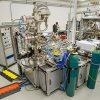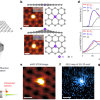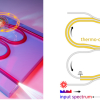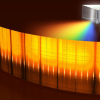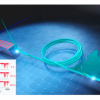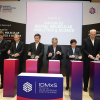Glyconics has signed an exclusive licensing deal with Ghent University in Belgium for its proprietary method for the measurement of diabetes and renal insufficiency using infrared (IR) absorption. Glyconics has also joined forces with the University to make use of future technology developed by the University Group in this key therapeutic area.
The diagnostic technology invented at Ghent University employs scanning the fingernails of diabetic versus control persons for post-translational modification of proteins using infrared spectroscopy for diabetes mellitus and renal insufficiency.
Under the terms of the license agreement, Glyconics has worldwide exclusive use of Ghent University’s proprietary measurement algorithm, scientific and clinical support and proprietary knowhow and database on age and gender reference values for diabetics and renal insufficiency patients.
“The exclusively licensed technology and R&D collaboration will significantly support our long-term goal to expand the applications of our hand-held IR point of care device and digital platform into other acute and chronic areas”, said Dr Kam Pooni, CEO of Glyconics.
“Diabetes is a global major public health problem. According to the International Diabetes Federation (IDF) there are 425 million people with diabetes in the world and 1 in 2 adults with diabetes is undiagnosed. In Africa, for example the number of diabetics will increase from 14.2 million (2015) to 34.2 million in 2040. There is a huge need for affordable point of care diabetes diagnosis and monitoring. Infrared spectroscopy is an alternative, non-invasive way to assess glycation and offers information regarding the target organ damage caused by diabetes in vital organs (e.g. kidney, eye)”, said Professor Joris Delanghe, Head of the Department of Laboratory Medicine, Ghent University.











